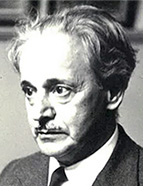

This possibility can be seen in the way he understood the work of the history of philosophy, which he carried out in the introductions to the various texts he translated, from Plato to Schopenhauer, including Aristotle, Augustine of Hippo, Berkeley, etc., an extraordinary effort of dissemination, which he theorised in a brief article published in 1956 in the Revista Ocidente , entitled “ Da História da Filosofia ” [ From the History of Philosophy ] . In this article, he takes up the idea of a genetic history aimed at a regressive understanding of the progress that has determined the present, which is why he only values “ knowledge of current facts and problems, evolutionarily linked to the way in which they were solved at an earlier time’, excluding any interest in the “ external history of systems ” ( OF III , p. 355). Even though this is a particular field where theoretical problematisation comes to the fore, the tension between the two matrices that structure his thoughts on H istory becomes clear: one geared towards the search for a meaning for the future, the other committed to the contemporary conditions of historiographical work on the past. In both, however, there is the conviction that, as Wundt intended, by being part of the self, knowledge brings about a transformation in the known reality, which means that, somehow , the study of the past, in its specificity, will always revert to the understanding of the present .
Having lived through two world wars, a national change of regime, the turmoil of the First Republic, and the establishment of a dictatorship whose end he never knew, limited by the conditions imposed on the Portuguese University and at odds with the intellectual practices that prevailed within it, the irresolution of this dilemma constitutes, to a certain extent, an unforeseen pledge of intellectual freedom. The scope of his epistemological perspective, in the national context, is reflected in how he influenced the historiographical understanding of academicians such as Jorge Borges de Macedo and Vitorino Magalhães Vilhena, while the intellectual breadth and camaraderie, prominent in his personality, with which he integrated the collective of opponents to the dictatorial regime, left its friendly mark on political figures such as Mário Soares, as is evident from the testimony he left at the end of the volume commemorating the centenary of his birth.
This work is financed by national funds through FCT - Foundation for Science and Technology, I.P, in the scope of the projects UIDB/04311/2020 and UIDP/04311/2020.
